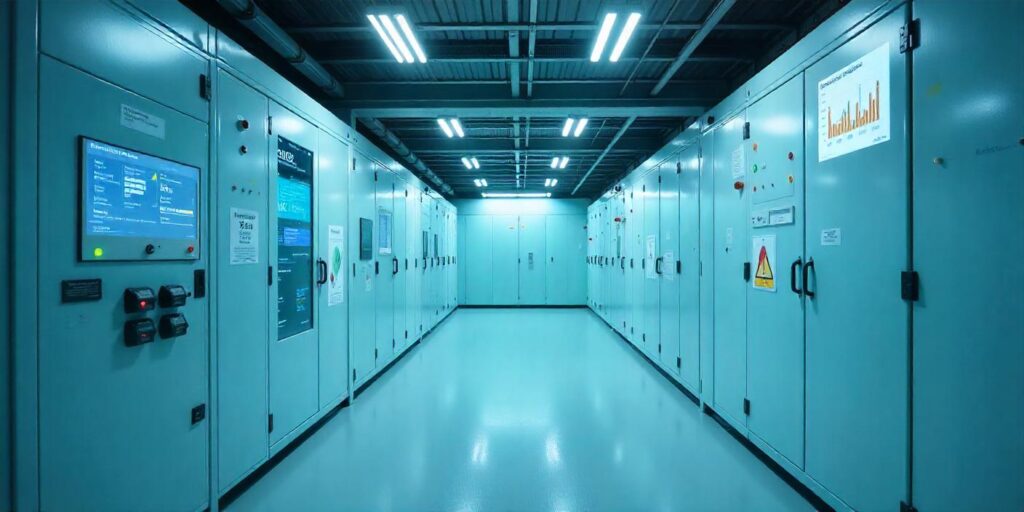Introduction:
In an age where energy costs are rising and environmental concerns are at the forefront of global discussions, energy efficiency has become a crucial objective for industries worldwide. Modular Switch Rooms (MSRs), which are innovative solutions for power distribution, play a significant role in enhancing energy efficiency. By optimizing power consumption and reducing waste, MSRs not only contribute to lower operational costs but also support sustainability efforts across various sectors.
This blog explores how Modular Switch Rooms facilitate energy efficiency, detailing their key features, benefits, and the impact they have on modern power distribution systems.
Understanding Energy Efficiency in Power Distribution
Energy efficiency in power distribution refers to the effective use of energy to perform the same task while minimizing waste. It encompasses various strategies and technologies aimed at reducing energy consumption without compromising performance. In the context of Modular Switch Rooms, energy efficiency can be achieved through advanced design, integrated technologies, and optimized operational processes.
Traditional power distribution systems often suffer from inefficiencies due to outdated equipment, poor design, and lack of real-time monitoring. These issues lead to energy waste, increased costs, and negative environmental impacts. Modular Switch Rooms, on the other hand, are designed with energy efficiency as a core principle, incorporating several features that contribute to reduced power consumption.
Key Features of Modular Switch Rooms Enhancing Energy Efficiency
- Compact Design: Modular Switch Rooms are prefabricated units designed to occupy minimal space while maximizing functionality. Their compact design reduces the amount of material needed for construction and allows for better integration into existing facilities. This space-saving feature also minimizes energy loss associated with lengthy wiring and inefficient layouts.
- Integrated Switchgear: MSRs typically feature advanced switchgear technology that enhances efficiency. Modern switchgear allows for better load management, ensuring that energy is distributed only where it is needed. This minimizes waste and reduces the risk of overload, which can lead to energy losses.
- Real-Time Monitoring: Equipped with IoT sensors, Modular Switch Rooms provide real-time data on energy consumption and system performance. Continuous monitoring allows for quick identification of inefficiencies and enables proactive adjustments to optimize energy usage. Data analytics tools can predict consumption patterns, leading to more informed decision-making regarding energy distribution.
- Smart Controls: The integration of intelligent control systems enables automated adjustments based on real-time data. For example, if a particular area requires less power, the system can automatically reduce the energy supplied, resulting in significant savings. Smart controls also facilitate demand response strategies, allowing users to adjust consumption based on utility pricing signals.
- Energy Recovery Systems: Some Modular Switch Rooms incorporate energy recovery systems that capture excess energy produced during operations. This recovered energy can be redirected for reuse within the facility, further enhancing overall energy efficiency.
Benefits of Enhanced Energy Efficiency
The adoption of Modular Switch Rooms significantly improves energy efficiency, leading to various benefits for organizations:
- Cost Savings: By reducing energy consumption, businesses can experience lower utility bills, leading to substantial cost savings over time. The initial investment in Modular Switch Rooms is often recouped through these savings.
- Reduced Environmental Impact: Enhanced energy efficiency contributes to a lower carbon footprint, aligning with global sustainability goals. As industries strive to meet regulatory requirements and consumer expectations for greener practices, Modular Switch Rooms offer a viable solution.
- Improved Reliability: With better load management and real-time monitoring, Modular Switch Rooms enhance the overall reliability of power distribution. This reduces the risk of outages and improves system performance, which is essential for critical operations in industries like manufacturing, healthcare, and data centers.
- Scalability and Flexibility: The modular design allows for easy scalability, meaning organizations can expand their power distribution capacity as needed without major overhauls. This flexibility supports ongoing efficiency improvements and adaptation to changing energy demands.
Implementing Modular Switch Rooms for Energy Efficiency
To maximize the energy efficiency benefits of Modular Switch Rooms, organizations should consider the following steps:
- Conduct an Energy Audit: Before implementing MSRs, conduct a thorough energy audit to identify current inefficiencies and areas for improvement.
- Select the Right Technology: Choose Modular Switch Rooms equipped with advanced technologies tailored to your operational needs. Consider features like smart controls, real-time monitoring, and energy recovery systems.
- Train Staff: Ensure that employees are trained on the new systems and understand the importance of energy efficiency. Engaging staff in energy management practices can further enhance outcomes.
- Monitor and Optimize: Continuously monitor energy consumption and system performance using the data collected from Modular Switch Rooms. Use analytics to identify trends and areas for further optimization.
Conclusion:
Energy efficiency is no longer a luxury but a necessity in today’s energy-conscious world. Modular Switch Rooms are at the forefront of this movement, providing innovative solutions for power distribution that optimize energy consumption and minimize waste.
By leveraging advanced technologies, real-time monitoring, and smart controls, MSRs enable organizations to significantly reduce their energy costs while promoting sustainability. As industries continue to prioritize energy efficiency, the role of Modular Switch Rooms will become increasingly vital, driving the transition toward a more sustainable future.
Organizations looking to enhance their energy efficiency should seriously consider integrating Modular Switch Rooms into their power distribution strategies, reaping the benefits of reduced costs, improved reliability, and a smaller environmental footprint.







